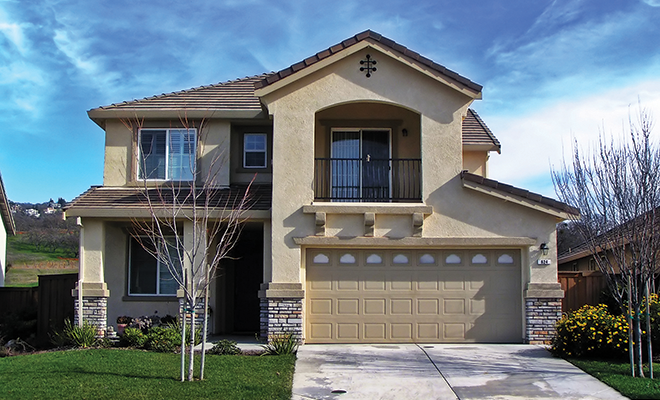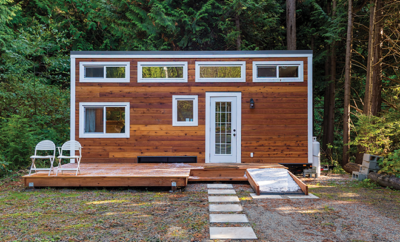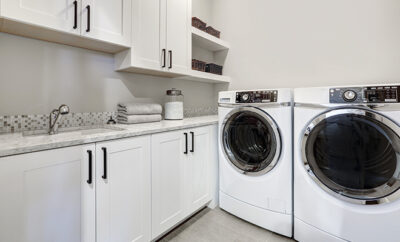
New Home or Older Home? Both Sides of the Coin
When it comes to buying a new home or an older home, you need to consider multiple factors. There are advantages and disadvantages to both.
The most obvious and tempting advantage of buying a new home is just that; it’s a brand-new, shiny and clean home! You won’t have to do much at all, unless you don’t like the color of the paint or carpet. You can move right in.
New Home Plusses
If the builder did a good job, you shouldn’t have maintenance issues for at least a few years. Your new home will likely have the newest technology, which should save you money on utilities and may give you a nice tax break, too. Many new homes are being built with green features and contemporary technology such as solar panels, energy-saving windows, smart appliances, USB outlet and electric vehicle charging stations, thermostats and door locking mechanisms you can operate from your mobile phone. Some even come with specialized flooring and paints that will keep you healthier.
If you collaborated with the builder, you may have played an active role in choosing the features you preferred. Builders also have a vested interest in selling their new homes quickly, so they typically assist buyers with financing needs, whether through their own company or with outside lenders. Newer neighborhoods also offer more choices and less competition from buyers because the builder has vacant homes throughout the housing development to sell.
…Or Minuses
You’ve probably guessed that the number one disadvantage to buying a new home is cost. Typically, new homes are priced 20 percent higher than existing homes. You can’t get the newest bells and whistles unless you pay for them, not to mention they may malfunction after warranties expire. They won’t be cost effective to fix. Despite being new, your home may be subject to poor workmanship or a builder who is unresponsive to your repair calls.
Another drawback is location. Good investments in real estate stem from location, location, location. If you’re looking at a new neighborhood development, it may be located in a less accessible location than an older neighborhood, farther away from the city center and its amenities. You may have to drive farther to work or even to the grocery store, until those service businesses see an increased need to open near you. Keep in mind that you will be surrounded by construction crews and noise until your area grows up.
If you buy into the newer neighborhood, it could also pose a risk if the builder gets into financial trouble or the development doesn’t thrive. Finally, your house may look like every other house on the street.
Older Home Plusses
In general, older homes are located in more established areas with convenient shopping and school systems that have had time to develop excellence in education. But just because they may have lower price points than newer homes doesn’t mean the workmanship isn’t as good. Typically, older homes are constructed with excellent craftsmanship and the neighborhoods where they’re located have good variety in architectural design.
With the prevalence of fixer-upper and flip-this-house television shows, just about anyone can renovate an older home these days. If you pay less for an older home, you will have more money for the upgrades you want.
…Or Minuses
Competition among buyers is a drawback when you’re buying an older home because there is simply less inventory from which to choose. This is especially frustrating when it means you have to increase your offer to the seller to beat out another contract. As the real estate market improves, buying gets tougher in densely populated areas of the country, so it could be more expensive than buying a new home. You may have to settle for a house that is less than ideal. Or you may end up buying a house in a neighborhood that is transitioning, meaning that it’s on its way up in value. Keep in mind you could, on the other hand, end up in a spiral-down neighborhood, where you lose value.
Plus, older homes have more systemic problems such as plumbing, electrical, heating and air conditioning, foundation, roof and general structural issues. They also have less technology and amenities than new homes and installing those features on an older home could prove costly. If you begin an extensive renovation project, building codes could require that you bring all other areas of the house up to current code, particularly electrical. Mortgages may be a bit more difficult to obtain on your own than with a motivated builder.
What’s the bottom line? It’s all about personal preference. Make a list of the pros and cons with all the factors to consider and your chances of making the right decision are very good. ■
Sources: homeinsight.com, investopedia.com and zillow.com.







